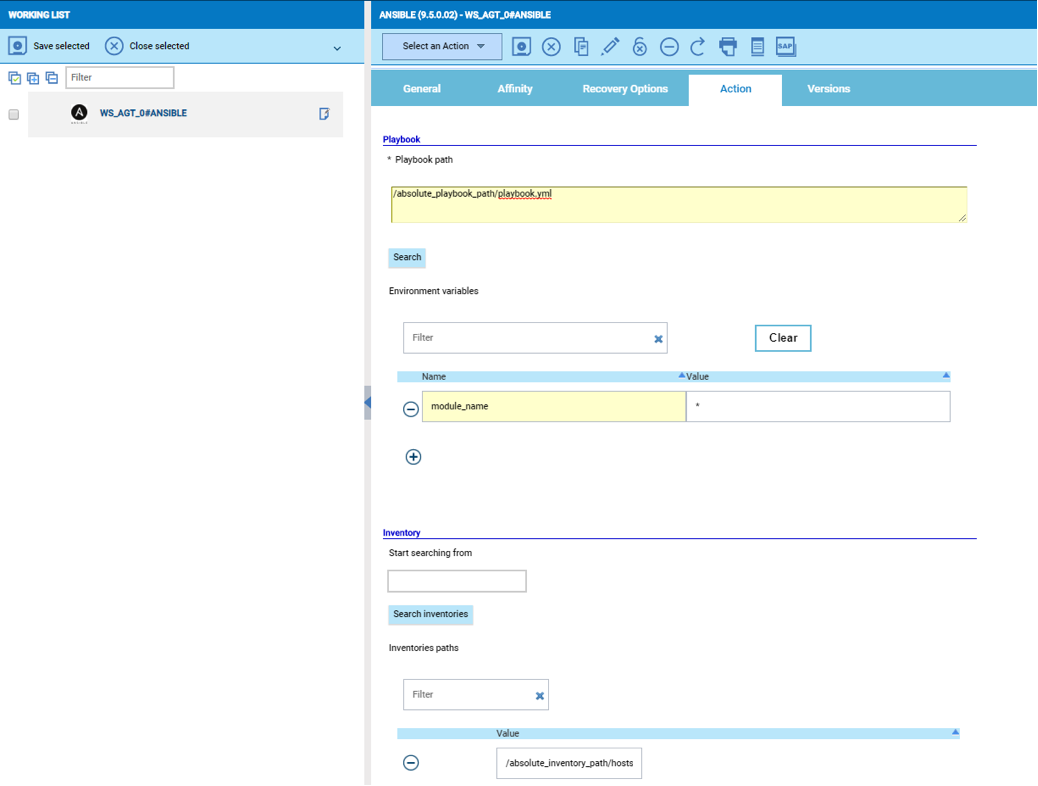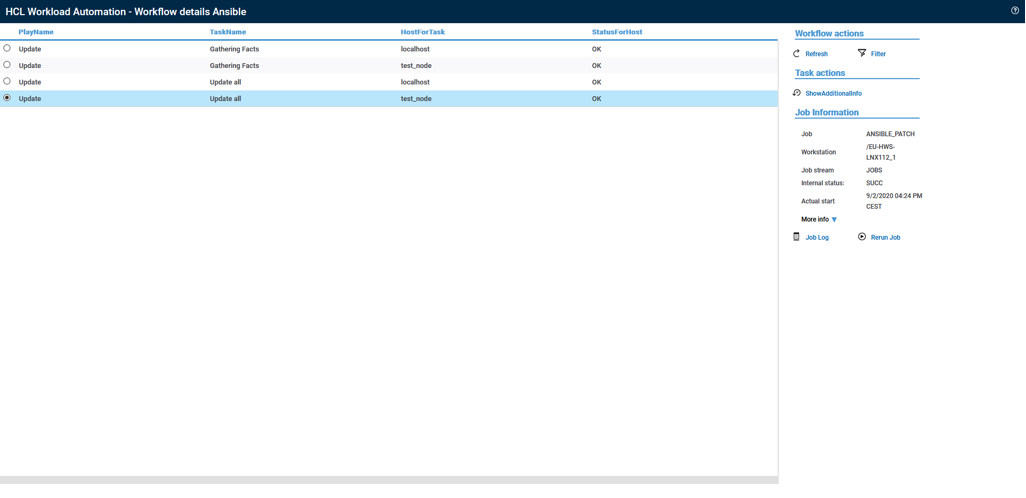|
Can’t get enough of automating your business processes? We have what you are looking for! The Ansible plug-in is available on Automation Hub, download it to empower your Workload Automation environment. Adding the Ansible plug-in, you can monitor all your Ansible processes directly from the Dynamic Workload Console. Furthermore, you can schedule when executing the Ansible playbooks, just creating a simple job definition. Before starting to use the plug-in, you need to install Ansible on the same machine where the dynamic agent that runs the Ansible job is installed. You also need to setup the SSH protocol to communicate with Ansible. Let’s demonstrate, through an example, how easy is to patch remote nodes with the Ansible plug-in.
--- - hosts: all name: Update packages tasks: - name: Update yum: name: " {{ module_name }} " state: latest
[LOCAL] localhost ansible_connection=local [REMOTE] node_name ansible_ssh_user=<username> ansible_ssh_host=<ip> We configured all necessary fields to make Ansible work, but if we want, we can also configure some additional options, such as:
2. Monitoring While Ansible executes the playbook, the plug-in offers the possibility to monitor in real-time its execution. Such monitor page, called Workflow details, is accessible from the monitor jobs view and contains details of each task that Ansible has executed up to a particular point. Refresh the page to see the updates and click on the showAdditionalInfo button to get more details about a specific task. Thus, thanks to the Ansible plug-in, you can automate your playbooks and monitor all your processes running on Ansible, all from one place. On Automation Hub we have this and so many other integrations that will enable you to automate everything you want. Automate more, automate better! Author's Bio
0 Comments
Your comment will be posted after it is approved.
Leave a Reply. |
Archives
July 2024
Categories
All
|






 RSS Feed
RSS Feed